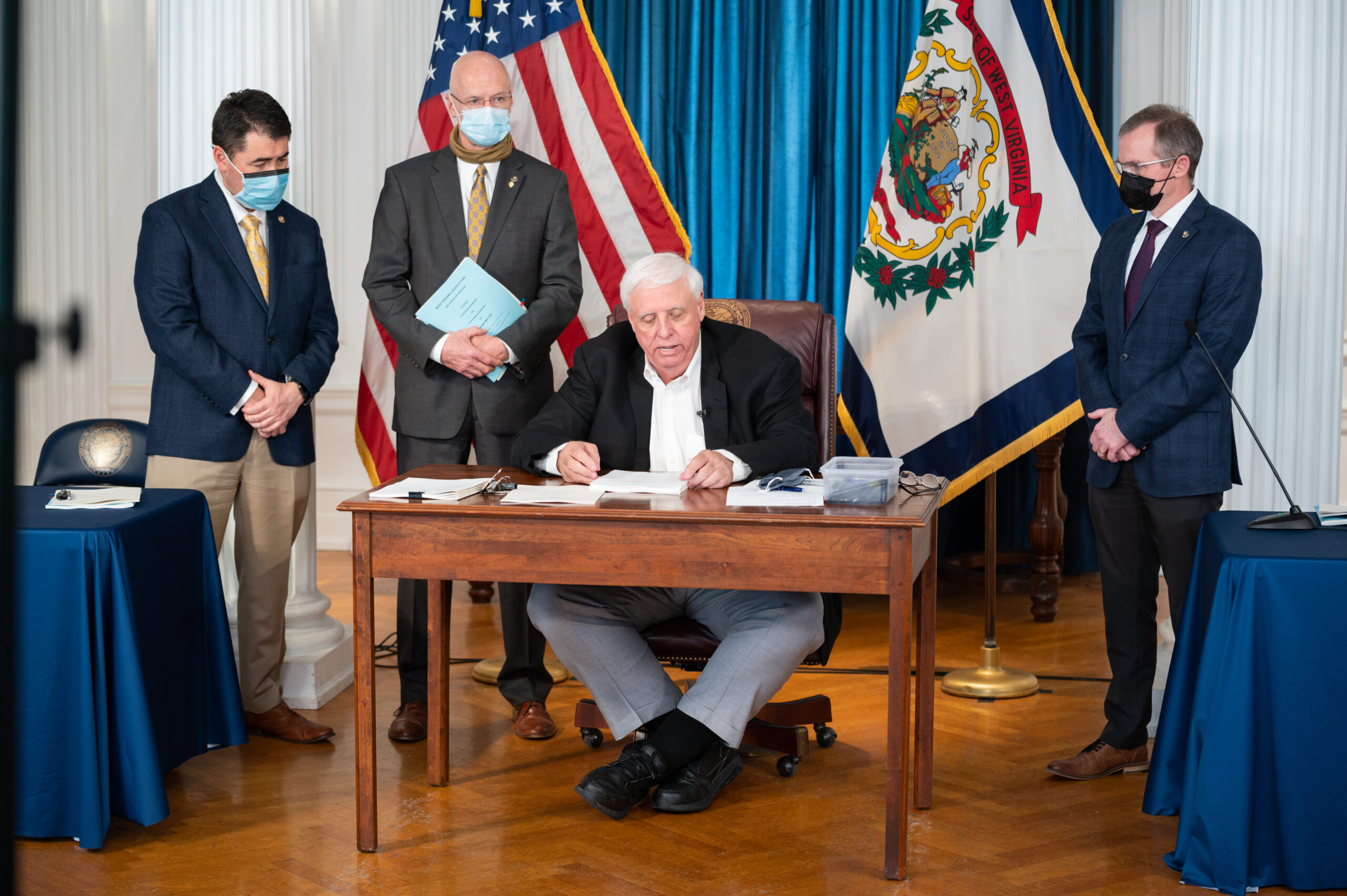MORGANTOWN – Gov. Jim Justice joined by four leaders of the state Senate Friday to ceremonially sign SB 275, the bill establishing an intermediate court of appeals.
Justice was joined by Senate President Craig Blair, Majority Leader Tom Takubo, Judiciary chair Charles Trump and Finance chair Eric Tarr.
Justice signed four copies with black Sharpies and presented each leader a copy of the bill and the Sharpie he used for that copy.
“We’ve done it, crossed the finish line, good stuff,” he said.
Before the signing, John Abegg, executive vice president for the U.S. Chamber of Commerce Institute for Legal Reform, offered some words of praise on crossing the finish line after so many years of failed efforts.
“This is an exciting day for West Virginia as you join the majority of states that have an intermediate court of appeals,” he said. An intermediate court will increase the transparency and stability of the court system.
Trump has run an intermediate court bill through his committee every year he’s been chair, but this was the first to get agreement in the House of Delegates.
He recounted that back in 1997, a commission first recommended an intermediate appellate court.
Now, “It’s going to benefit the citizens of West Virginia and the future of the West Virginia judiciary,” he said.
The bill completed the legislative process April 1, and Justice officially signed it into law Thursday.
The new court will have a single three-judge panel serving 10-year terms. Judges will be initially appointed by the governor to start work July 1, 2022. Then, they will be elected to staggered terms in 2024, 2026 and 2028.
Under the new intermediate court structure, the Workers Compensation Office of Judges will stop hearing cases and be terminated by September 2022; all appeals will then go directly to the Workers’ Compensation Board of Review and then be appealed from there to the intermediate court.
The intermediate court will also handle appeals from family court; circuit court civil, guardianship and conservator cases; agency orders; and Health Care Authority certificate of need orders.
The state Supreme Court will be the next and final level of appeal. The Supreme Court will have the discretion to review or turn away intermediate court appeals.
The court is not designed to hear criminal case appeals, but the Supreme Court will have the discretion to take over that duty.
TWEET David Beard@dbeardtdp
EMAIL dbeard@dominionpost.com




